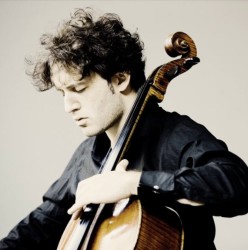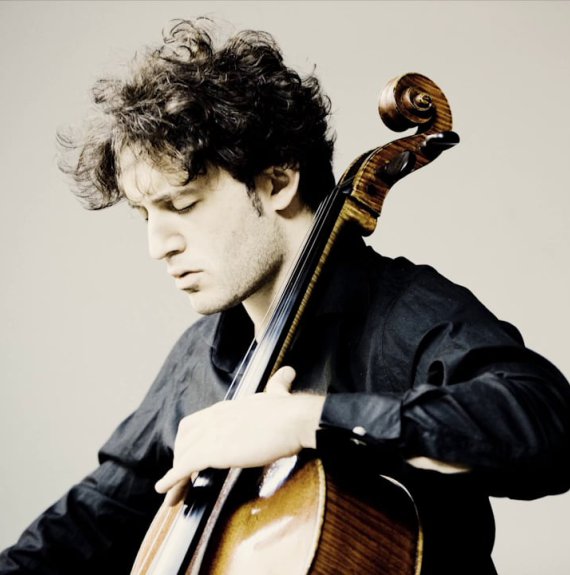 United Kingdom Beethoven, Shostakovich, Ligeti, Schubert: Nicolas Altstaedt (cello / conductor). Scottish Chamber Orchestra. City Halls, Glasgow, 21.2.2020. (GT)
United Kingdom Beethoven, Shostakovich, Ligeti, Schubert: Nicolas Altstaedt (cello / conductor). Scottish Chamber Orchestra. City Halls, Glasgow, 21.2.2020. (GT)

Beethoven – Overture, Coriolan, Op.62
Shostakovich – Cello Concerto No.1 in E flat major, Op 107
Ligeti – Ramifications
Schubert – Symphony No.4 in C minor ‘Tragic’ D.417
Nicolas Altstaedt in the Scottish Chamber Orchestra concert programme pointed out the common tragic distinction in all four programmed works in that the C minor in Coriolan was Beethoven’s tonality depicting tragedy; Shostakovich’s First Cello Concerto evokes the tragedy of the camps in Siberia through quoting Stalin’s favourite folk song, plus linking this with the death of Ligeti’s brother and father in a camp. Accordingly, the performance of Beethoven Coriolan Overture was somewhat darker and heavier than has been heard in this ensemble’s recent performances with clipped phrasing (a feature that would reappear in the Schubert symphony). The strings were playing with rubato, and Altstaedt almost danced without a baton constantly urging more from the players and there was a flowing rhythmic pulse. This was a thought-provoking performance.
The appearance of Shostakovich is a rarity in the SCO’s programmes; however, the First Cello Concerto is scored for chamber forces. Most certainly when they have performed music by 20th century Russians their performances have been of the highest order. Under their previous Principal Conductor, Robin Ticciati, they produced one of the finest performances of a Shostakovich work that I can recall when they performed the 14th Symphony at the 2011 Edinburgh International Festival. It seemed that the performers grasped the very essence of the Russian composer’s music.
One curiosity was to place the horn player at the front of the stage, something I thought unnecessary, albeit the writing for the horn is as if the composer’s alter ego. Following the opening quotation of the DSCH signature motto, Altstaedt adopted quite a brisk tempo, and his playing here was well supported by the clarinet of Nicholas Cox, and later by Huw Evans on the horn. In the slow movement (Moderato) it was a pity that there were false notes from the horn, yet there was magical playing in some of the finest music in the concerto notably on the celeste by Peter Evans which imparted an other-worldly idiom. This was followed by a lovely nocturnal passage by Altstaedt, and in the Cadenza, the French-German cellist’s eloquent yet edgy playing allowed the intensity of the work to emerge more powerfully. Quickly the finale burst forth with quotations again from the composer’s signature tune, and the wistful appearance of the Georgian folk song ‘Suliko’ adding both colour and sardonic mood with bright playing from the woodwind before this 20th century masterpiece closed on a positive note. In the finale there was some discord between the orchestra and soloist, and it would seem to me that this difficult concerto really does need a proper conductor, and not the sharing of duties by a soloist/conductor.
György Ligeti’s 1968 Ramifications – performed in its orchestral variant for twelve string players – introduced a quite different mood with the strings revealing a kinship with his music for 2001 – A Space Odyssey with its mysterious figures, intensely played measures slowly rising in dissonance and slowly disappearing like a comet in the night sky, or perhaps a meteorite flashing through the atmosphere. Then an almost rhapsodic idea emerges, leading to an extended solo passage from Nikita Naumov on the double bass before it closes in complete silence.
Schubert’s Fourth Symphony opened spectacularly and, almost at once, the ‘tragic’ theme arrived from the oboe of Robin Williams and was supported throughout the orchestra, from which emerged a degree of vibrancy with the secondary idea before moving impressively to a thunderous climax on an upbeat theme. The opening bars of the Andante elicited some fine playing from the woodwind – notably the clarinet of Nicholas Cox – announcing a return to a poignant mood, with especially fine playing by the flute of André Cebrián. In the Menuetto, Altstaedt continued to carve out great curves with his ever-active arms and hands, drawing more musical lines using his fingers, and he was rewarded by impressive playing in the Trio. In the Allegro finale, the conductor adopted a brisk tempo and attained lively playing from the woodwind and gloriously burnished sound from the horns and trumpets. Chopped phrasing brought more dramatic surge from the players, although it did not always allow the themes to be heard. However, in the finale, order was restored, and this ‘tragic’ symphony ended on a gloriously winning note returning to the symphony’s opening octaves.
The theme of tragedy may connect all four works heard but there is a more rewarding conception of a common humanity in all these composers’ music which made this fine concert all the more memorable.
Gregor Tassie
